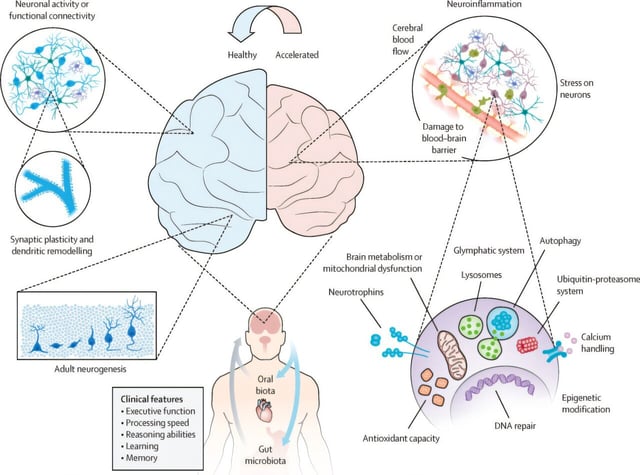Overview
- Physical activity between ages 45 and 65 lowers brain concentrations of beta-amyloid, a biomarker for Alzheimer's disease, according to new research in Alzheimer's & Dementia.
- Inactivity during midlife is linked to brain atrophy in regions associated with Alzheimer's, emphasizing the importance of consistent exercise during this period.
- A Lancet review reveals that even small doses of high-intensity exercise—such as brisk walking—can reduce dementia risk by up to 40%.
- Exercise improves brain health through mechanisms like enhanced blood flow, reduced inflammation, and the release of protective molecules, which counter neurodegenerative processes.
- Experts call for updated public health guidelines to emphasize the importance of midlife activity and highlight the benefits of even modest increases in exercise intensity.


